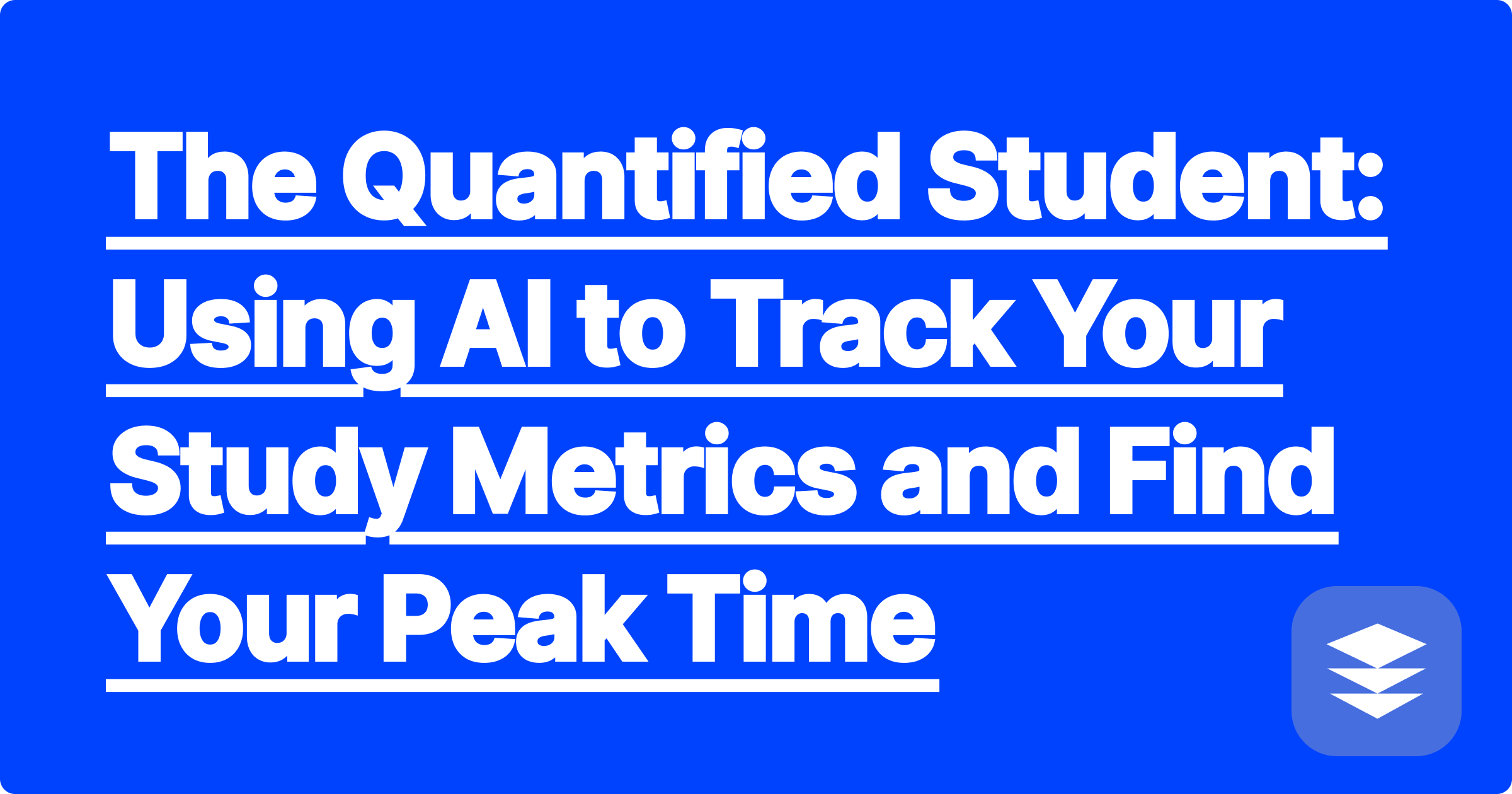
We live in an age of data. We use apps to track our sleep, our fitness, and our finances. We optimize everything in our lives—so why are our study habits still based on guesswork and gut feelings? You might spend 8 hours in the library, but how many of those hours were truly productive? The "Quantified Self" movement isn't just for athletes; it's for anyone looking to improve their performance. Becoming a quantified self for students is about making data-driven decisions to study smarter.
Every time you complete an assignment, get a grade back, or use a tool like GPAI, you are generating data about your own learning.
Think of yourself as a data scientist whose project is... you.
For a week, keep a simple log. You can do this in a spreadsheet or even in a GPAI Cheatsheet, using the note taker function.
After a few weeks, you'll have a small dataset. Paste this log into your AI assistant, like GPAI Solver, and ask it analytical questions.
[Image: A clean chart generated by GPAI showing a student's grades plotted against the time of day they studied, revealing a clear peak in performance for morning study sessions. Alt-text: A student using AI to track study time and performance, discovering their peak productivity time.]
The AI might reveal insights you never would have noticed on your own.
This data-driven approach allows you to move beyond generic study advice and create a plan that is perfectly optimized for your own brain, your schedule, and your specific strengths and weaknesses. It's the most powerful way to take control of your academic performance.
A: The initial tracking takes a little discipline, but the AI does all the heavy lifting of the analysis. Spending 5 minutes a day logging your work can save you 5 hours a week of inefficient studying. The return on investment is massive.
A: This is a key part of the vision for future learning platforms! Imagine a "Personal Analytics Dashboard" within GPAI that automatically tracks which topics you've mastered and which you are struggling with, and then suggests a personalized study plan for you. This is the future of truly personalized, data-driven education.
Stop guessing what works. Start measuring. By embracing the principles of the Quantified Self and using AI as your personal data analyst, you can uncover the secrets to your own productivity and unlock a new level of academic achievement.
[Become a data-driven student today. Start tracking your progress and let GPAI help you find your path to a 4.0. Sign up for 100 free credits.]
How to Finally Organize Your Chaotic Google Drive / Dropbox with AI
The Sunk Cost Fallacy of Your Old Study Habits: Why It's Time to Switch to AI
How an AI Notetaker Can Help Students with ADHD Focus
The 'Weekend Warrior' Study Plan: How to Master a Week's Content in 5 Hours
Could you explain that with a sports analogy?': Asking AI for Personalized Metaphors
The Quantified Student: Using AI to Track Your Study Metrics and Find Your Peak Time
How to Reverse-Engineer an 'A+' Paper with an AI Assistant
The 'Empty Your Brain' Technique: Using an AI Notetaker Before Bed for Better Sleep
Using AI to Create 'Ancestor' Cheatsheets: Linking Current Topics to Prerequisites
What's Next for GPAI? A Sneak Peek into Our Vision for the Future of Learning